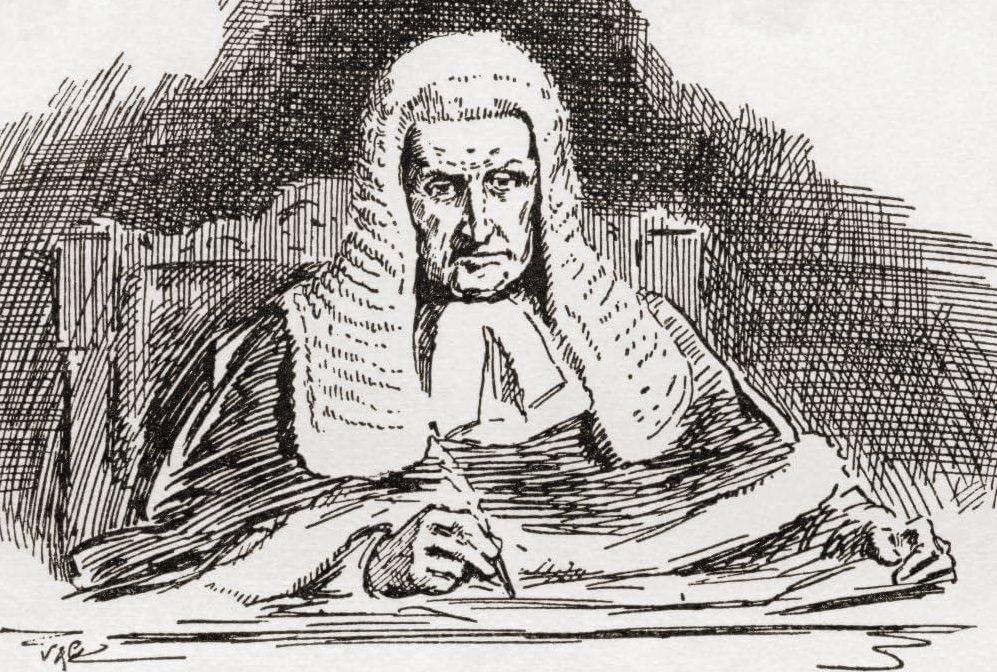
“A convicted accused can appeal. An acquitted person has no recognised route to have offending words removed from the judgment or to achieve any form of correction,” writes legal columnist HUGH SELBY.
SOMETIMES jury trials are replaced with judge-alone trials.

The task for the judge sitting alone is to find either that the charge is proved beyond reasonable doubt, or that it hasn’t been. There is no middle position.
Judges must give detailed reasons in which they demonstrate that they have followed all the instructions that they would have given to a jury (if there was one), properly noted and evaluated all the evidence and submissions before them, and applied the law to those facts to reach their decision.
Juries do not give reasons for their decisions: deadlocked, guilty, not guilty.
So far so good.
The problem at the heart of this article is when a judge in a criminal case acquits the accused but then trashes their reputation.
Such an excursion is improper, not only because it goes beyond the judge’s task, but also because it is an abuse of power.
What it achieves is a lifelong, “authoritative” libel of an acquitted accused for which he or she has no remedy.
A convicted accused can appeal. An acquitted person has no recognised route to have the offending words removed from the judgment or to achieve any form of correction.
The ACT’s Judicial Council was established in 2017 to consider complaints about the behaviour of judicial officers. www.actjudicialcouncil.org.au
The Judicial Commissions Act 1994 sets out a comprehensive regime for the composition of the council, how it can enquire, to whom it reports.
Any person (they are mostly self-represented litigants) may complain about a matter that relates to the behaviour of a judicial officer (section 14). “Behaviour” does not encompass conduct, but conduct can include behaviour. The jurisdiction of this council is too restricted.
The composition of the council is the chief justice, the chief magistrate, a lawyer and a community representative. If the complaint is made against the chief justice or the chief magistrate then another judicial officer must take their place while the matter is investigated.
Why is there no one from the ACT Civil & Administrative Tribunal on this council? Why is there only one community representative, rather than several?
More concerning is that a repeated outcome is the referral of the complaint – with a recommendation – to the head of jurisdiction, that’s the chief justice or the chief magistrate.
The investigator overseer becomes the doer or the “do nothing” with the outcome. What’s more, the council does not report what the head of jurisdiction does with the referral.
The referral makes sense, the overlap of functions does not. The heads of jurisdiction should not sit on the council.
The council deals with allegations of bias, failure to give a fair hearing, discourtesy, speaking in a threatening tone, failure to recuse, unfamiliarity with the law and failing to properly weigh evidence.
Basic complaint review includes reading the relevant transcripts and listening to the audio recordings of the “in court” proceedings. It stops there.
The council’s jurisdiction, confined to “behaviour”, doesn’t include the conduct of improperly including irrelevant but damaging material in a written judgment.
A judgment – however bad it might be – once delivered is final. The judge has exhausted his or her powers. This is termed “functus”. The wording can’t be changed, save for the most obvious “clerical” style error.
All that is left is to appeal. But an acquitted accused cannot appeal. They are left without any remedy.
Some ACT judges do not see that this is a problem. Respectfully, I think they are wrong.
There is an immediate, partial solution and another, longer term, better solution.
Without any change to the law the chief justice can:
- Make it quite clear to colleagues that “trashing acquitted accused” is to cease; and,
- The ACT courts can return to the pre-internet age when only some judgments were published. The majority were delivered to the affected parties and a copy kept in court records. As has been done interstate the “offending” judgments can be removed from online sites. Treat it as a form of harm minimisation.
Alternatively, and additionally, there can be a statutory change that allows an affected party to apply for an offending judgment to be “republished” with the offending material removed. This, I suggest, would be a proper function for a justice-seeking Judicial Council.
Hugh Selby is a former barrister. His free podcasts on “Witness Essentials” and “Advocacy in court: preparation and performance” can be heard on the best known podcast sites.
Who can be trusted?
In a world of spin and confusion, there’s never been a more important time to support independent journalism in Canberra.
If you trust our work online and want to enforce the power of independent voices, I invite you to make a small contribution.
Every dollar of support is invested back into our journalism to help keep citynews.com.au strong and free.
Thank you,
Ian Meikle, editor









Leave a Reply